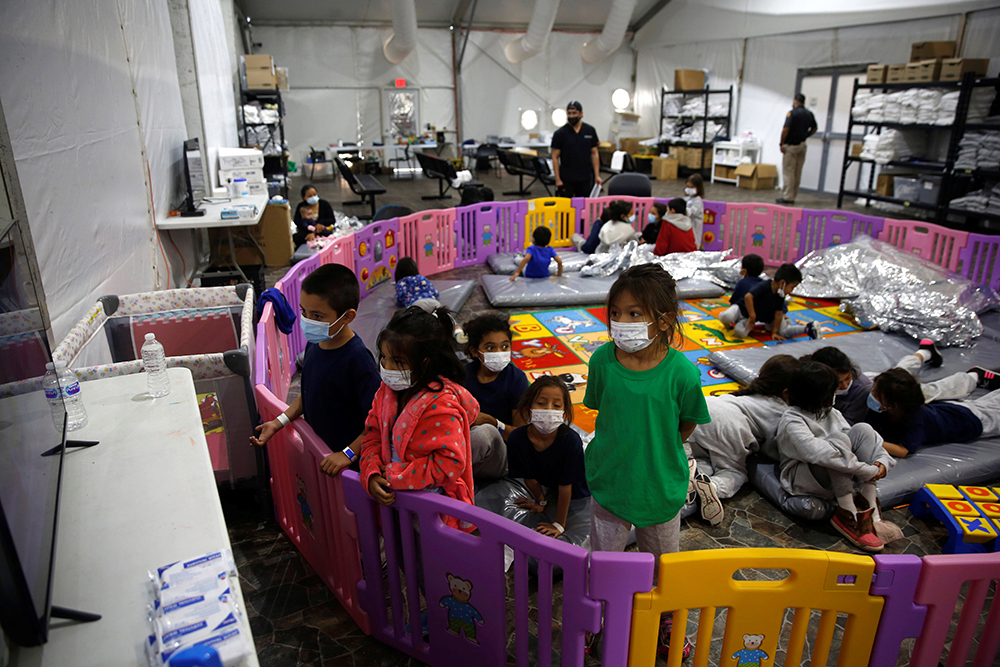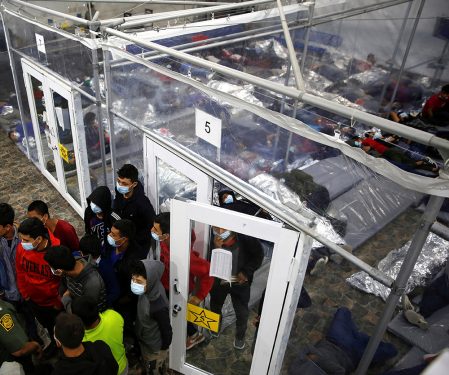
MANHATTAN — When the priest of the lone Catholic parish in the U.S.-Mexico border city of Donna, Texas, considers the present situation at the border, his first concern is for the unaccompanied minors trying to gain entry to the United States.
“It is very important to protect the children because the cartels are involved in this situation. Another big issue in this part is human trafficking,” Father Franciscus Asisi Eka Yuantoro told The Tablet. “The children need protection because they do not know the process and how to adapt with a new situation. We have to create a program that can truly help guide the children.”
Father Yuantoro presides over St. Joseph Catholic Church, which serves about 3,000 Catholic families — part of a total population of around 16,500 — in the south Texas city. It’s about 15 miles from the border. He said he also has a chapel in the southern part of Donna about three or four miles from the border, which gives them a “direct connection.”
[Related: Northern Mexico Border Cities Bear Brunt of Border Challenges, Advocate Says]
Donna is a part of the Rio Grande Valley, which is one of the sections of the border where migrants most often attempt passage into the country. It’s been in the news of late because of its U.S. Customs and Border Protection (CBP) Facility that was severely overcrowded with thousands of people — children and families — confined to a space designed for 250.
Government data indicated that there were 3,130 unaccompanied minors in CBP custody as of Sunday, down from the peak of 5,767 at the end of March.
The drop comes after CBP continues to transfer children into the custody of the Department of Health and Human Services, where they go to shelters specific for children until they can be released to a sponsor in the United States. The total number of children in HHS custody is now over 18,000, the CNN report indicates.
As the number has increased, and HHS facilities have filled, unaccompanied minors have been sent to various locations to try and accommodate the numbers. Two of those were the San Diego Convention Center in California and Freeman Coliseum in San Antonio in Texas.

In a recent conversation with The Tablet, San Diego Bishop Robert McElroy called the situation “tremendously sad” because they’re “separated from their families and they had questions we did not have answers for.”
“Am I going to find a home here? Am I going to be able to get to my relatives? All of these different things, which are behind their coming,” Bishop McElroy said.
Father Yuantoro said he believes a new program can help alleviate the anxiety experienced by these children. And he also believes it should extend to the other side of the border to provide more help as they cross.
“The one thing is right now, we need volunteers to protect the children and assist the children. The system from the government has to have an officer to protect them because they don’t know what they can do as immigrants, in here, in a hard process and everything,” the priest said.
“The second thing is, as they’re entering in here so that, before they’re entering through the border and bridge, they can protect the children too,” he continued. “Some of them are in a situation and [need protection] from the cartel over there and we have to assist them.”
He further noted that the cartels will “abuse the children and use them to do their business and it’s very important to protect the children from danger.”
Because of COVID-19 safety precautions, Father Yuantoro hasn’t gone to the Donna migrant facility, although he has helped migrants at the Catholic Charities of Rio Grande Valley Humanitarian Respite Center in nearby McAllen, Texas.
In Donna, Father Yuantoro said he most often helps migrants with documentation. He said some come to Donna without any documentation at all and he works to get them on the right track, along with the Diocese of Brownsville, which is a process that ranges from months to years.
For that reason, Father Yuantoro said, families often settle in Donna, in its more than 100 colonias — a settlement of migrants near the border. He estimates today 35 percent of parents in the city are undocumented.
“They stay in colonias and they work as immigrants and they have a pay,” he said. “It’s not truly a good payment but they say that it’s better for us in here than in our country.”

Children – they are the future pillars of our Planet. May each of these be blessed with a happy present and a bright future.
Dr. Cajetan Coelho